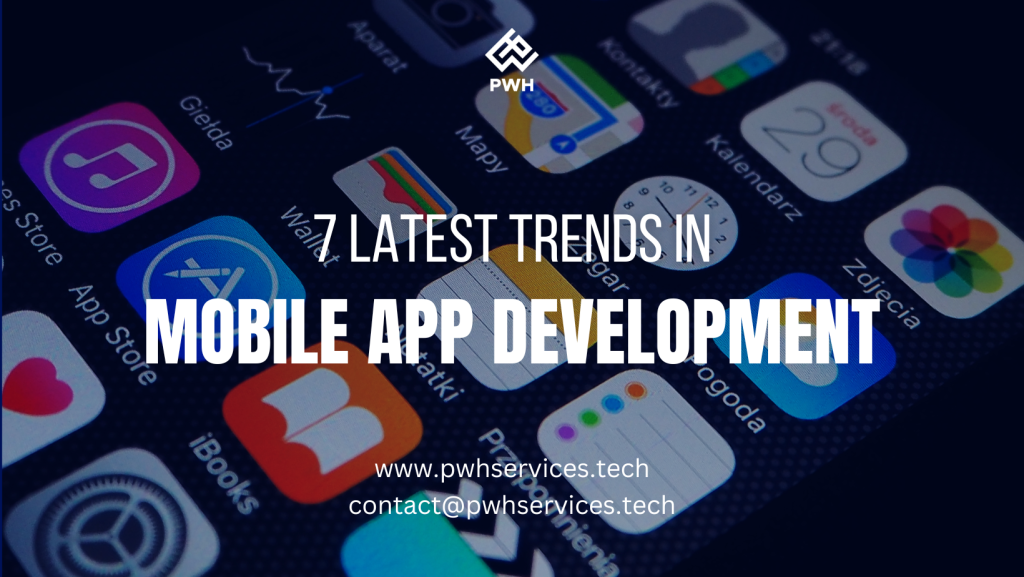Mobile app development has undergone a remarkable evolution since the inception of the first handheld cellular phone in 1973. As we venture into a new era, several key trends are poised to shape the future of mobile app development, revolutionizing the way users interact with technology.
1. 5G Technology Integration
The rollout of 5G technology is a transformative force in mobile app development, ushering in a new era of connectivity. The significantly faster data transfer speeds and lower latency offered by 5G open up unprecedented possibilities for app developers. This game-changing technology facilitates high-quality video streaming, augmented reality (AR), and virtual reality (VR) experiences, revolutionizing industries such as gaming, healthcare, and education. The seamless and lightning-fast connectivity provided by 5G is set to redefine user expectations and pave the way for innovative applications.
2. Artificial Intelligence (AI) and Machine Learning (ML)
AI and ML are driving a paradigm shift in the app development landscape, with their impact poised for continuous expansion. Developers are increasingly integrating AI and ML algorithms to enhance user experiences by offering personalized content recommendations, predictive analytics, and intelligent automation. AI-driven chatbots are evolving into sophisticated interfaces, delivering users a natural and interactive engagement that goes beyond traditional app interactions. The infusion of AI and ML into mobile apps is creating a more intelligent and responsive digital environment.
3. Internet of Things (IoT) Integration
The Internet of Things (IoT) is fostering unprecedented connectivity among devices, with mobile apps positioned at the epicenter of this interconnectivity. From smart homes to wearable devices, the integration of IoT into mobile app development is creating a seamlessly interconnected ecosystem. The surge in IoT capabilities is driving the development of apps that empower users with enhanced control over their environments and connected devices. The future of mobile app development is intricately linked with the expanding web of IoT, offering users a more integrated and interconnected digital experience.
4. Progressive Web Apps (PWAs)
Progressive Web Apps are gaining traction as a hybrid solution, seamlessly blending the best aspects of web and mobile applications. These apps provide a fast, reliable, and engaging user experience, even in low-bandwidth conditions. The rise of PWAs is reshaping the app development landscape, offering developers a more accessible and versatile solution for users. With the ability to function offline and deliver a consistent experience across various devices, PWAs are becoming a preferred choice for developers aiming to reach a broader audience.
5. Cross-Platform Development
The adoption of cross-platform frameworks like Flutter and React Native is on the rise, streamlining the app development process. These frameworks enable developers to write code once and deploy it across multiple platforms, reducing development time and costs. As the demand for apps on both iOS and Android continues to grow, cross-platform development is becoming the industry norm. This approach ensures a consistent user experience across different devices, providing developers with a more efficient and cost-effective solution.
6. Augmented Reality (AR) and Virtual Reality (VR)
AR and VR technologies are transcending their initial association with gaming and entertainment, finding applications across diverse industries. Mobile apps are increasingly incorporating AR and VR to provide immersive experiences in fields such as retail, education, and healthcare. As hardware capabilities improve and user acceptance grows, the integration of AR and VR is set to become more pervasive, offering users a heightened level of engagement and interaction.
7. Voice Technology Integration
The rise of voice-controlled devices, exemplified by smart speakers, has spurred the integration of voice technology into mobile apps. Voice assistants are advancing in sophistication, allowing users to interact with apps through natural language commands. This trend holds particular significance in enhancing accessibility, promoting inclusivity, and improving overall user-friendliness in apps. The seamless integration of voice technology is reshaping the way users interact with mobile applications, providing a hands-free and intuitive experience.
Future of App Development
The future of mobile app development is an exhilarating landscape characterized by continuous technological advancements and user-centric innovations. As developers explore the vast potential of 5G, AI, IoT, and other emerging technologies, users can anticipate a more connected, intelligent, and immersive app experience. Staying abreast of these trends is crucial for businesses and developers seeking to stay ahead in this dynamic and ever-evolving industry. The convergence of these trends is not only shaping the future of mobile app development but also redefining the way individuals engage with the digital world.
PWH Services
contact@pwhservices.tech

